Neurological
Conditions
We offer specialized infusion pharmacy and support services for patients with neurological disorders.
Features
DeliverIt Infusion & Specialty Pharmacy
Frequently Asked Questions
Immunoglobulin (IG)
Immune Globulin (IG) is a sterile solution containing concentrated antibodies derived from the blood plasma of healthy donors. Its primary function is to bolster the body’s defense against infections and to desensitize patients prior to organ transplantation. There are two main types of IG: Intravenous Immune Globulin (IVIG) and Subcutaneous Immune Globulin (SCIG), both of which are utilized across a wide spectrum of medical conditions.
In individuals with immune deficiencies, combating common infections can be challenging. IG administration works by enhancing the immune system through the provision of vital antibodies, thereby safeguarding against life-threatening infections. Moreover, IG is instrumental in managing autoimmune disorders, where the immune system mistakenly targets the body, triggering inflammation. By calming the immune response, IG effectively reduces inflammatory episodes associated with autoimmune conditions.
Additionally, for patients awaiting organ transplants who have heightened sensitivities, IG administration can significantly improve the success rates of transplantation procedures.
Immunoglobulin (IG) is utilized in the treatment of various conditions, aiding in the modulation of the immune system and alleviating inflammatory episodes associated with autoimmune and immune-mediated ailments. Additionally, it can enhance the prospects of a successful organ transplant by mitigating sensitivities in patients prior to the procedure (known as desensitization).
Typically administered intravenously (IVIG) or occasionally through subcutaneous injections (SCIG), this therapy is instrumental in managing a range of medical conditions.
As a specialized infusion pharmacy, our clinical teams possess extensive expertise in infusion therapies, including those for rare diseases and complex medical scenarios.
What are some conditions your provider may choose to treat with IG?
- Dermatomyositis
- Chronic Inflammatory Demyelinating Polyneuropathy (CIDP)
- Guillain-Barre Syndrome
- Immune Thrombocytopenia
- Common Variable Immunodeficiency (CVID)
- Lupus
- Multifocal Motor Neuropathy (MMN)
- Multiple Sclerosis (MS)
- Myasthenia Gravis
- Myositis
- Polymyositis
- Primary Immunodeficiency (PID)
- Solid organ transplant patients:
- Pre-transplant for the highly-sensitized
- Post-transplant for those at risk of rejection
How is IG administered?
IG therapy can be administered through two main routes—intravenously (IV) or subcutaneously (SC).
Intravenous (IV) administration involves infusing the IG solution over several hours. Subcutaneous (SC) administration, on the other hand, entails injecting the solution directly under the skin’s surface.
The dosage of IG is determined based on your weight and may be administered in a single day or spread out over multiple days, depending on your physician’s instructions.
For IVIG administration, you have the option of receiving treatment in the comfort of your home or at one of our infusion suites. A registered nurse will oversee the process, monitoring you closely throughout the infusion.
SCIG injections offer greater flexibility as they can be self-administered by the patient, eliminating the need for an in-home nurse. This allows for increased independence and reduced “down-time.” The duration of therapy may vary, ranging from a single treatment to several months.
What are the side effects and how can I manage them?
it’s important to recognize that like any medication, IG can affect individuals differently. While not everyone experiences side effects, when they do occur, they can range from mild to moderate. These reactions may manifest within 30-60 minutes following the start of the infusion or up to 48 hours after injection or infusion. It’s worth noting that side effects tend to be less severe with SCIG.
If you encounter side effects, your doctor may prescribe pre-infusion medications to mitigate symptoms. These may include acetaminophen (Tylenol), diphenhydramine (Benadryl), or IV hydration (IV fluids).
Common side effects associated with IG therapy encompass:
- Blood pressure changes
- Back pain
- Chest tightness
- Chest pain
- Chills
- Dizziness
- Headache
- Fatigue
- Fever
- Flushing
- Muscle cramps
- Nausea
- Rash
- Rigors
- Vomiting
- Wheezing
It’s crucial to promptly inform your healthcare provider if you experience any of these symptoms during or after IG therapy. They can provide guidance on managing side effects and may adjust your treatment plan accordingly.
Who should not be prescribed IG?
There are certain individuals for whom IG therapy may not be suitable. It’s essential to consult with your healthcare provider to determine if IG therapy is appropriate for you.
Disclamer : This information serves solely for informational purposes and should not be considered as medical or legal advice. It is not intended to replace consultation, diagnosis, or medical treatment by a qualified healthcare provider or legal advice. For specific medical or legal needs or concerns, individuals should consult with a physician, healthcare professional, or legal expert. It is crucial never to disregard professional medical advice or delay seeking it based on information obtained here or from any website.
Neurology Guides
As a provider, we collaborate with you and your team every step of the way to facilitate the success of your patients' treatment journey.
To reach your team, Call toll-free 877.993.3548
Neurology Dosing Guide
Improving Health Outcomes: We implement detailed IVIG dosing guide to assist in above-average adherence rates and improved health outcomes for our patients.
LEQEMBI® Payer Guide
Enhancing Treatment Efficacy: We provide a comprehensive LEQMBI dosing guide to support optimal adherence and contribute to improved treatment outcomes for our patients.
Neurology Billing Guide
Coordinating insurance benefits & referral support from receipt through dispensing and administration, reducing barriers to care for both providers and your patients.




